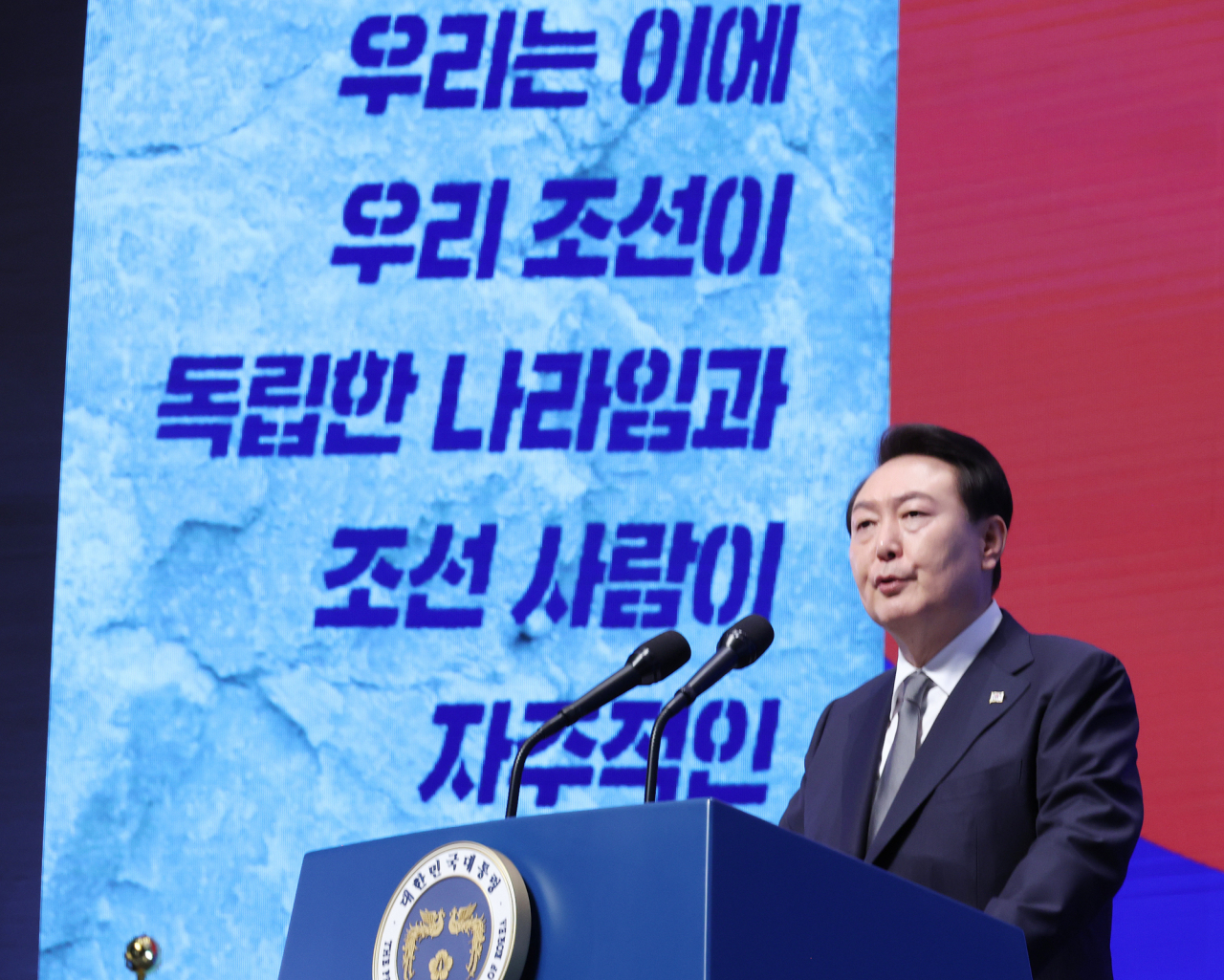Yoon finds Japan ties harder to reset as Korea marks March 1 Movement
Ending dispute over forced labor a work in progress amid Japan’s reluctance
By Choi Si-youngPublished : Feb. 28, 2023 - 15:49

A conservative leader eager to “quickly mend relations” with Japan, President Yoon Suk Yeol still faces an uphill battle to deliver on his pledge made months ago, as Tokyo shows little sign of moving to close a deal.
Seoul maintains that Tokyo needs to apologize to and compensate Koreans forced to work for Japanese companies during World War II. That depends on the Japanese leader because it is now a “political decision,” according to Foreign Minister Park Jin last week, when he met his Japanese counterpart at a security conference in Munich, Germany.
After a meeting with Korean victims’ families on Tuesday, Park said consultations are still underway to facilitate such decision-making, without elaborating on any specifics the gathering discussed, including a timeline on a settlement. Park sent his deputy to a G-20 foreign ministers meeting held this week in New Delhi, India.
Representatives for the victims -- specifically those affected by a 2018 Supreme Court ruling ordering Japanese firms to pay damages -- have repeatedly demanded the Japanese offer a formal apology with direct compensation, which the firms have rejected. The representatives accuse the Korean government of being soft on Tokyo, as Seoul is working on ending the dispute with a less formal apology and funds entirely from the contributions of Korean companies.
And Yoon’s office is unlikely to call out Japan on Independence Movement Day, observed Wednesday. The office offered little in the way of a hint as to what Yoon would raise, other than saying words like freedom, peace and prosperity would be key fabrics of his speech for the occasion, usually a venue for the Korean president to set out priorities involving Japan, which ruled over the Korean Peninsula from 1910-1945.
“Going at length about any particular issue is something to think about,” a senior official at Yoon’s office said.
On Independence Day last year on Aug. 15 -- another opportunity to directly address the public about how the president intends to deal with the Asian rival -- Yoon did not go into specifics about the feud then either. But he offered optimism, saying he would not only repair strained ties, but advance them -- a show of confidence that had clearly convinced Koreans that preparations were underway to warm relations.
“There are some seemingly unworkable differences we’re still seeing, but I think the two sides would come around one way or the other. It’d be harder to pinpoint exactly when that would take place, though,” said Choi Eun-mi, a research fellow at the Asan Institute for Policy Studies, noting it also is in Japan’s best interests to get past the issue.
Seoul is now a major player deeply involved in international endeavors for peace, and Tokyo is well aware of the fallout from having dismissed Korea’s concerns, according to Choi.
The Korean and Japanese leaders already have enough trust to make that happen, Choi added, saying she thinks little of any speculation suggesting that Japan is wary of a breakthrough because chipping in such efforts could be used for political gain by Korea ahead of general elections in April next year. Korean politicians have often rallied anti-Japanese sentiment to woo voters.
Lee Won-deog, a professor of Japanese studies at Kookmin University, agreed that Japan has more to gain, politically as well as economically, from a fresh perspective on the status quo. “From North Korea, China and Taiwan to global supply chains, Japan needs Korea on its side,” Lee said of Seoul-Tokyo cooperation on global challenges.
Korea has exhausted every avenue, conducted outreach and brought to the table what it could possibly come up with, Lee stressed, saying Japan is “now to decide whether to accept a compromise deal” that has been elusive for the last five years since 2018, when ties plunged to a new low following the Supreme Court ruling.
“This is a dispute that involves both Korea and Japan. Coming to terms with what’s on the table after rounds of talks is more like finishing what we had started together. It doesn’t mean giving into concessions,” Lee said, noting that bringing closure within this month is preferable. Yoon flies to the US in April for a summit and Japan in May for a G-7 meeting. General elections will be the focus for the Yoon administration following the summits.
Seeking US intervention could be an option as long as Japan remains reluctant to meet Korea halfway, Lee said, with reservation, describing such outside help as a “last resort.” The US, the biggest ally of both Korea and Japan, has distanced itself from the longtime historical dispute out of fear that doing so could complicate the reconciliation.












![[Weekender] How DDP emerged as an icon of Seoul](http://res.heraldm.com/phpwas/restmb_idxmake.php?idx=644&simg=/content/image/2024/04/25/20240425050915_0.jpg&u=)







